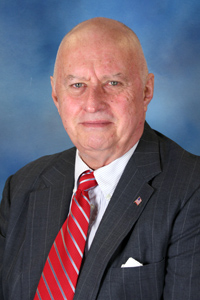Presidential, Senate Races in Wisconsin Are Tied, New Poll Results Show
Changing opinions, particularly among voters who label themselves independents, and the impact of campaign events – especially the first presidential debate – have brought both the presidential and US Senate races in Wisconsin to dead ties, according to results of a new round of the Marquette Law School Poll released Wednesday.
Both races are now pure toss-ups, said Professor Charles Franklin, director of the poll and visiting professor of law and public policy at the Law School.
In poll results four weeks ago, Democratic President Barack Obama led by 14 points over Republican challenger Mitt Romney. Two weeks ago, Obama was up by 11 points. But in polling done Oct. 11 to 14 – just ahead of the second presidential debate – Obama was favored by 49% and Romney by 48%, effectively a tie.
Franklin pointed to the impact of the presidential debate in Denver as a central factor. Obama’s performance in that debate was widely panned. “Rarely has a debate produced such a large movement in the polls,” Franklin said.

